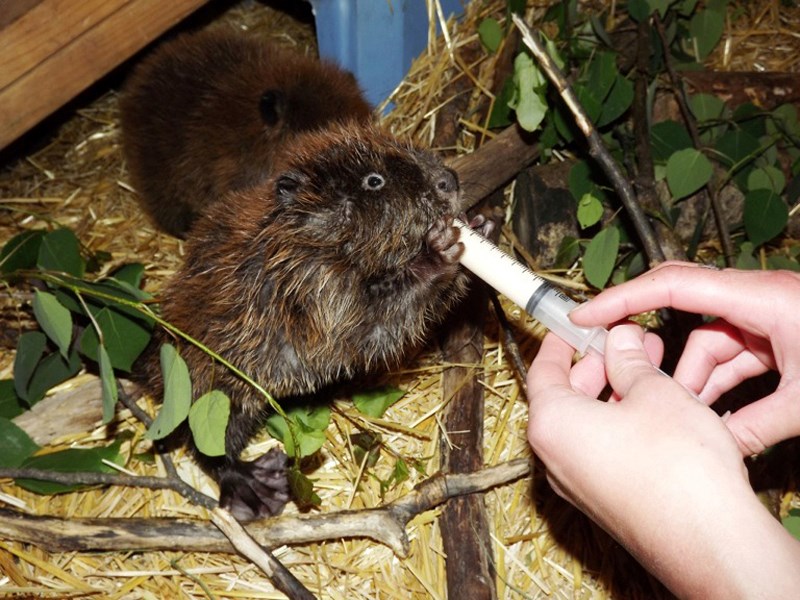Two months after the Plains Midstream pipeline break poured hundreds of thousands of litres of light sour crude into the Red Deer River, impacting wildlife from near Sundre all the way to Glennifer Lake, the Medicine River Wildlife Centre is finally feeling a little more vacant.Following the spill, the centre, which is located in Spruce View, near Innisfail, received an adult beaver, a crow, a goose and a baby beaver, all affected by the spill and in need of treatment.The crow and goose did not survive but the adult beaver was released a few weeks later, leaving the facility with just the baby beaver to find a new home for.Each animal released is a victory for the centre , Carol Kelly, executive director of Medicine River Wildlife Centre, said in a Gazette interview.Depending on the animal, it can take anywhere from two days to two years to rehabilitate an animal - but 60 per cent of all animals brought the centre will be rehabilitated and released back into their appropriate habitats.The road to recovery for the baby beaver, who has been affectionately named Oily by centre staff, has been smooth and successful to this point but they're not done yet, she said.The staff and volunteers at the centre are now actively searching for a foster beaver family for it. For this, the centre relies on the surrounding farmers and landowners.Like all of their release sites, the centre must ensure that the new habitat is an appropriate place based on the season, food source and that the habitat is far enough from civilization so that they don't fall victim to human interference.“Some people don't mind if they have beavers on their property,” says Kelly. “So they will call us up and tell us they have beavers on their property and then we will see if that family of beavers will foster the baby.”Once they have received the call research students are sent out to observe and study the possible foster families, and the habitat. Finding a family willing to foster the baby beaver can be the most challenging part though.“Beaver's are very secretive,” she says. “It takes time.”The center has observed a few beavers over the past few weeks, but unfortunately none were suitable to act as a foster family for Oily.“We've seen a few that didn't have any babies so that's too bad,” she says but adds that there are three more pairs to check out.Currently at the shelter there are four orphaned beavers needing foster homes.They only have a few weeks to find homes for the beavers as they typically hibernate in the winter.If they have to, the centre can and will house the beaver's over the winter, but Kelly would rather they didn't have to, as it's a bit of a challenge.While most of the animal brought to the centre are rehabilitated and released when they're ready and it's safe to do so, there are a few resident animals who are unable to be released back into the wild for various reasons.Those animals are typically either transferred to other centres or zoos, become foster parents for new arrivals, or become part of the education team.For example, Otis the Owl (a Great Horned Owl) is one of the centre's resident animals and is one of the best known members of the education team. He recently became the subject of a book about his adventures at the centre.Otis's Story, is the first of 36 books in the series, illustrated by a local artist and written by education coordinator Erin Young.All of the proceeds of the book goes towards the purchase of the 453 acres of land around the centre, a little bit of a thank you from Otis, to the centre for all the work they do, she said.The first book details how Otis came to live at the centre. The book also has an educational aspect to it.“At the end of each book there is information for the kids about what to do if you find an animal, how to protect their habitats, things like that,” she said.The centre, which is built around rehabilitation and education, got a nice boost this spring thanks to a provincially-funded Community Initiatives Program.The $18,850 grant was matched by the centre to purchase new education displays, equipment and a vehicle.The centre will be using vehicle starting next week. It features photos of the centre's two best-known education animals, Otis and Charlie the Porcupine, on the outside panels and will be used to attend educational events and engagements.For information about the centre call 403-728-3467 or check out the centre's new website at www.medicineriverwildlifecentre.ca. The centre is also on Facebook and Twitter.



